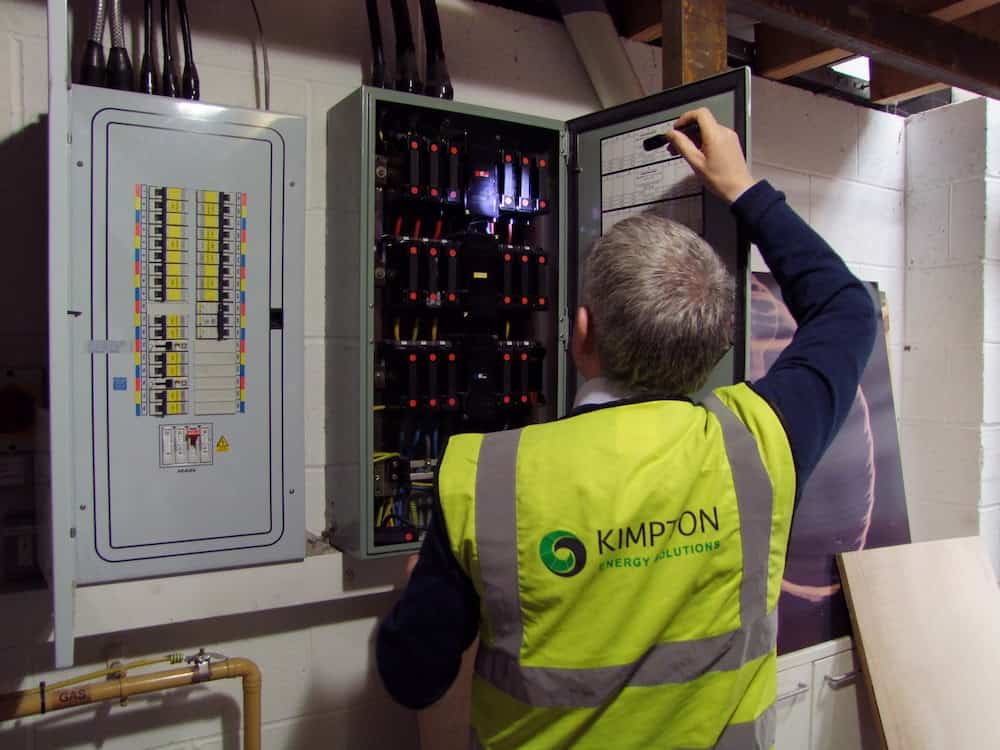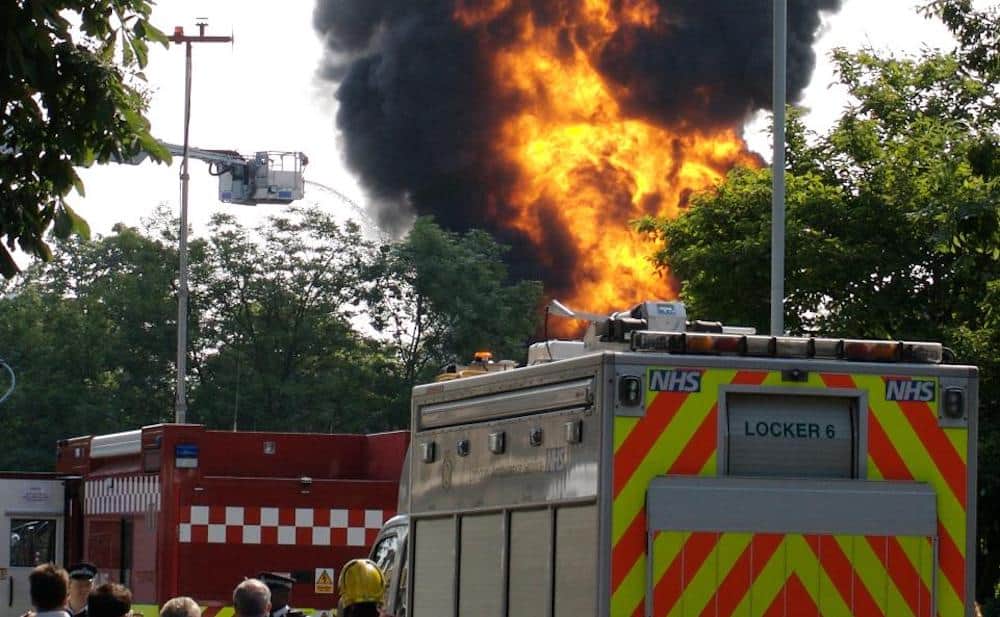
An Electrical Installation Condition Report (EICR) Fixed Wire Inspection is a test and Inspection on the electrical wiring of a property. It is designed to outline any problems with the fixed wiring circuits that may present a risk.
The Electrical team at Kimpton work to an agreed standard which is known as BS7671 – following Guidance Note 3. This was created by the Institution of Engineering and Technology (IET). It is designed to provide clear guidance on the inspection and testing of electrical systems.

The IET co-publishes BS7671 with the British Standards Institution (BSI) and is the authority on electrical installation. We are now working to the 18th Edition of BS7671.
The standard has evolved over the years to comply with new equipment and new learnings, but the common background is the safety of people, whether customers, staff or visitors within the workplace, which is governed by The Electricity at Work Regulations 1989.
This requires that:
“As may be necessary to prevent danger, all systems shall be maintained so as to prevent, as far as is reasonably practicable, such danger.”
What the IET Guidance Note 3 does is give an agreed procedure about how anyone involved with EICR testing or PIR testing (Periodic Inspection) should work. It covers what procedures they should follow, how tests should be carried out and what ‘reasonable and practical’ steps need to be taken — and that these steps will also provide an adequate level of protection against fire risks.
There is no fixed time period set between inspections and again this is governed by the standard. It is also dictated by the environment in which it is installed.
A swimming pool or spa installation, where the environment is wet and therefore most likely to deteriorate quickly, requires an annual inspection.
A leisure complex may require testing every three years or so as it is open to the public. A more industrial or office environment should only require testing every five years.
There is also the option to test just a portion annually. So, for example, a five year inspection can be carried out in 20% sections over the five year period and a three year completed in 33% chunks. This allows the property owner to spread the cost and minimise disruption.
With all of these agreed timescales for inspection, it is also a requirement for interim visual checks by a competent person to ensure there is no visual damage or obvious deterioration of a fixed wire installation.
With a commercial property that is leased or rented, it is also normal for it to be tested when a tenancy agreement ends to ensure it meets the standard for the incoming tenants.

According to official UK Statistics in 2017/8 there were 15,577 fires in non-residential sites. Of these, 11,141 were classed as accidental and 4,436 deliberate. This lead to 20 fatalities and 994 non-fatal casualties. Drilling down into these figures further, 2,430 were caused by faulty appliances and leads and 1369 were caused by the misuse of equipment and appliances.
Fire is a constant risk with badly maintained electrical equipment and it’s this risk that the EICR is designed to minimise. Perhaps the more encouraging figures to come from the Government statistics are that these figures have fallen year on year since 2011.
Fires from Faulty appliances and leads has fallen almost 35% from 3,736 per yer and Misuse of equipment or appliances by 38% from a big of 2,208 per year. To us, this shows the standard and these tests are working AND reaching the risk of injury.
We are seeing an increasing demand for EICR (Fixed Wire Inspections) amongst our existing commercial clients and at the same time, more and more enquiries from new ones. We offer testing and inspection as part of our planned and preventative maintenance service. It can be carried out as required to ensure you stay within the law and keep your staff and customers safe. It is your legal duty as an employer to keep your staff safe at work.
In a recent project we completed, there were a series of separate distribution boards throughout the site. It was within a manufacturing plant and more than half of these were critical to the site running, so could not be tested during the plant operating hours. Our team can be incredibly flexible and work around your requirements. In that particular case, we completed all of the non-critical inspections during working hours and the remaining ones were tested out of hours between 16.00 – 04.00. If it’s critical for you to keep working, we will work around your needs and complete the inspections when it works for you.
We are finding this more and more that the days of shutdowns for inspections are few and far between and therefore we’re happy to be flexible and work around your needs. Maintenance is not a 9-5 job these days and we see this with more and more with air conditioning installation projects too, as these rarely fit neatly into normal daytime operating hours and often need a round the clock service to minimise disruption.
If you believe it may be time to test your electrical installation, then please call us today and we would be happy to talk through your options to ensure you stay the right side of the law and your business is disrupted as little as possible throughout the process.
If you would like to discuss any of our services, please call 0151 343 1963 or complete the form below and we will be in touch shortly.